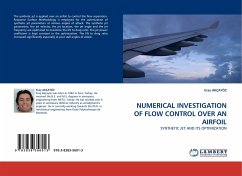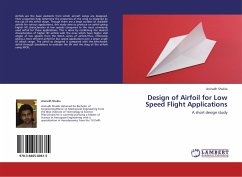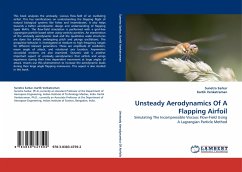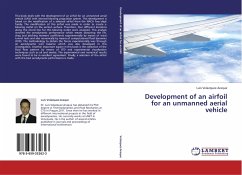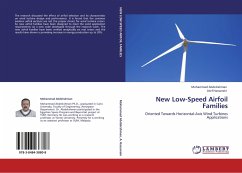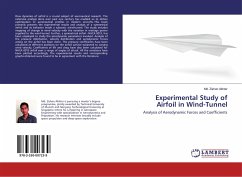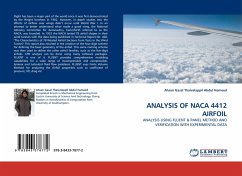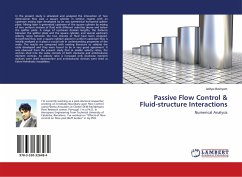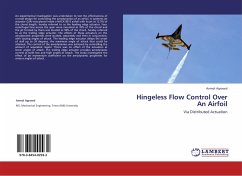
Hingeless Flow Control Over An Airfoil
Via Distributed Actuation
Versandkostenfrei!
Versandfertig in 6-10 Tagen
32,99 €
inkl. MwSt.

PAYBACK Punkte
16 °P sammeln!
An experimental investigation was undertaken to test the effectiveness of a novel design for controlling the aerodynamics of an airfoil. A synthetic jet actuator (SJA) was placed inside a NACA 0015 airfoil with its jet at 12.5% of the chord length, hereby referred to as the leading edge actuator. Four centrifugal fans across the span were mounted at 70% of the chord and the jet formed by them was located at 99% of the chord, hereby referred to as the trailing edge actuator. The effects of these actuators on the aerodynamic properties were studied, separately and then in conjunction, with varyi...
An experimental investigation was undertaken to test the effectiveness of a novel design for controlling the aerodynamics of an airfoil. A synthetic jet actuator (SJA) was placed inside a NACA 0015 airfoil with its jet at 12.5% of the chord length, hereby referred to as the leading edge actuator. Four centrifugal fans across the span were mounted at 70% of the chord and the jet formed by them was located at 99% of the chord, hereby referred to as the trailing edge actuator. The effects of these actuators on the aerodynamic properties were studied, separately and then in conjunction, with varying angles of attack. The leading edge actuator delays the onset of stall up to 24 degrees, the maximum angle of attack that could be attained. The control of the aerodynamics was achieved by controlling the amount of separated region. There was no effect of the actuation at lower angles of attack. The trailing edge actuator provides aerodynamic control at both low and high angles of attack. The study investigated the effect of jet momentum coefficient on the aerodynamic properties for various angles of attack.



